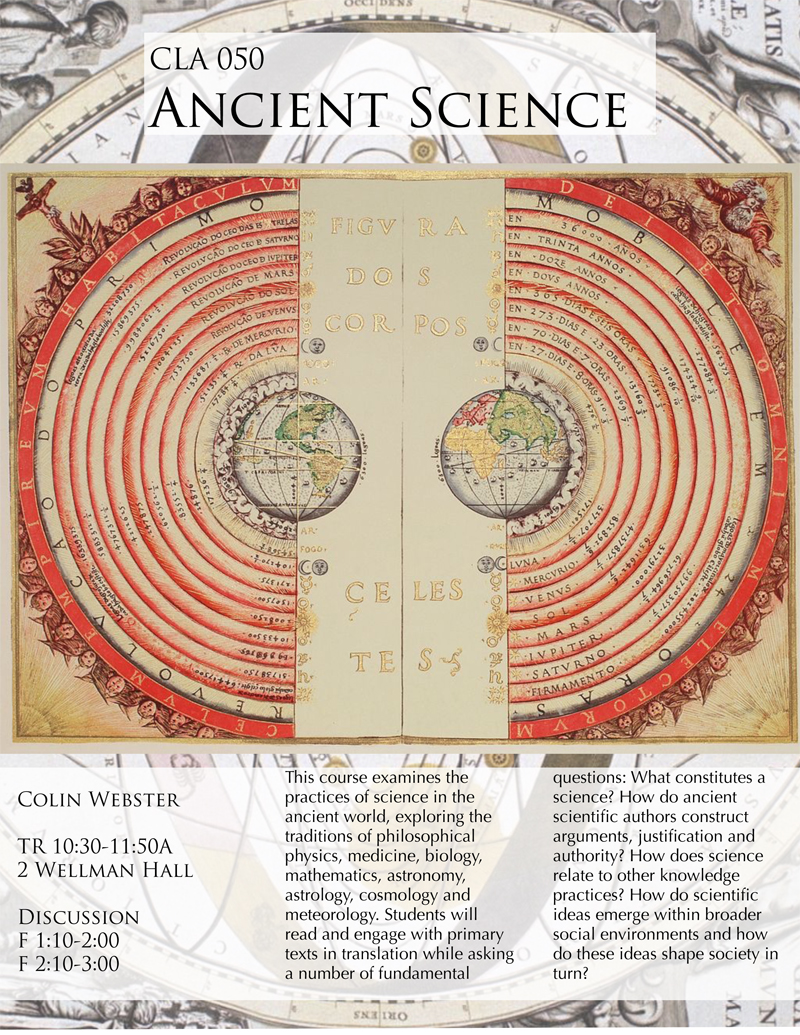
Classics 050. Ancient Science (4 units)
Colin Webster
Lecture:
TR 10:30-11:50A
2 Wellman Hall
Discussion Sections:
| SECTION | INSTRUCTOR | DAY/TIME | ROOM | CRN |
| 001 | Cai Thorman | F 1:10-2:00P | 1116 Hart Hall | 44051 |
| 002 | Cai Thorman | F 2:10-3:00P | 1116 Hart Hall | 44052 |
| 003 | Evan Brown | F 1:10-2:00P | 146 Robbins Hall | 44053 |
| 004 | Evan Brown | F 2:10-3:00P | 146 Robbins Hall | 44054 |
| 005 | Madelaine Wheeler | F 1:10-2:00P | 217 Olson Hall | 44055 |
| 006 | Madelaine Wheeler | F 2:10-3:00P | 217 Olson Hall | 44056 |
| 007 | Jonathan Burks | F 1:10-2:00P | 205 Olson Hall | 44057 |
| 008 | Jonathan Burks | F 2:10-3:00P | 205 Olson Hall | 44058 |
Course Description: This course examines the practices of science in the ancient world, exploring the traditions of philosophical physics, medicine, biology, mathematics, astronomy, astrology, cosmology and meteorology. Students will read and engage with primary texts in translation while asking a number of fundamental questions: What constitutes a science? How do ancient scientific authors construct arguments, justification and authority? How does science relate to other knowledge practices? How do scientific ideas emerge within broader social environments and how do these ideas shape society in turn? In general, students will gain a broad understanding of science in antiquity. They will learn how ancient thinkers formed and conceptualized many of the disciplines that we take for granted today.
Prerequisite: None.
GE credit (Old): Arts & Humanities and Writing Experience.
GE credit (New): Arts & Humanities, World Cultures, and Writing Experience.
Format: Lecture - 3 hours.
Textbooks:
- Various, Hippocratic Writings, translated by J. Chadwick (Penguin Classics, 1984)
- Lucius Annaeus Seneca, Natural Questions, translated by Harry M. Hine (University of Chicago Press, 2014)
- Helen King, Greek and Roman Medicine (Bristol Classical Press, 2001)
- Richard D. McKirahan, Philosophy Before Socrates [Second Edition] (Hackett Publishing, 2010)
- 695 reads
